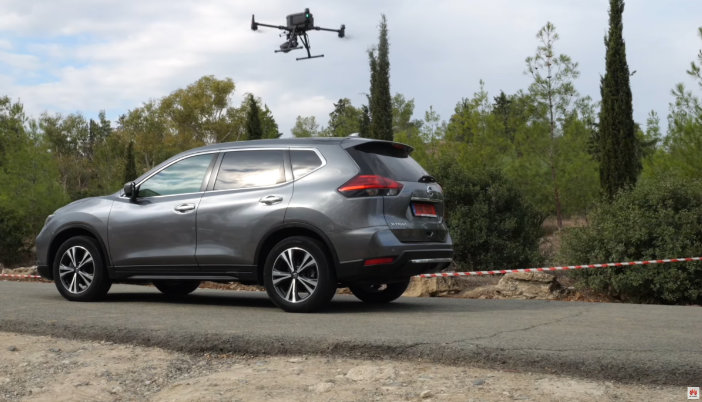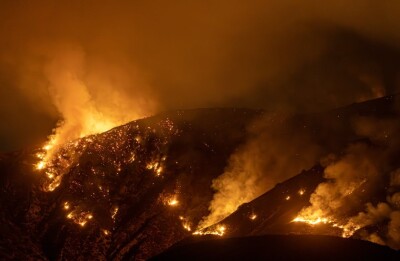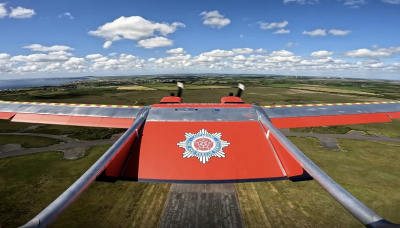One of the major issues regarding national wildfire disasters in the European Union is prevention. The massive destructive force of fires, due to the climate crisis, threatens lives, the environment, and assets, and can cause big social economic shocks. In the European Union, the Golden 15-minute rule says that the first 15 minutes are critical to fight fires. To effectively fight wildfires, first responders require an effective fire detection system, and that’s why Huawei, together with PROBOTEK, launched an early fire detection use case in Cyprus’ capital city of Nicosia.
As a Mediterranean country with exceptionally hot and dry summers, Cyprus suffers from an increasing number of wildfires. Under Huawei’s “Smart & Green Village” program, PROBOTEK and Huawei will take advantage of telecommunication provider Cyta’s 5G network, as well as AI, and drones to detect forest fires early, reduce damage and save lives. According to Cyta’s CCO George Metzakis, Cyta’s 5G network will provide the essential high-speed, low-latency connectivity for real-time data transmission and drone operations. It also opens up other possibilities, from revolutionizing emergency response to powering smart cities.
“This initiative demonstrates the high degree of sensitivity and active interest of Huawei Technologies (Cyprus) in issues of protecting our forests and natural environment from fires,” stated Mr. Andreas Christou, Vice general manager of Cyprus Forest Department. “In the battle to tackle fires, there is no room for complacency, and more importantly, no one is left out. It is with great satisfaction that today the will of the private sector in this direction is confirmed through the innovative fire detection program 'Smart & Green Village' by Huawei.”
Working as a tech enabler, PROBOTEK has been involved in various fire prevention-related EU projects. Through this, George Delaportas, CEO at PROBOTEK, claims, the company has gained enough experience and knowledge to understand the difficulties, limitations, and advantages of these technologies, allowing them to set up a well-defined operational scheme and platform. The fire detection use case was implemented for the first time in 2022 in Athens, Greece. With its features tested and improved, it is being introduced this year in a neighboring country that also experiences wildfires.
“In Greece, last year, for four months, we managed to detect fires in approximately 2.5 minutes. This is our plan for Cyprus, too—to detect fires very early,” said Delaportas. “The key is to detect early and make sure we have as few false alerts as possible. In other words, provide fast and accurate results. Currently, there’s no common platform to assist all involved officers, first responders, decision-makers, and ready personnel on-site, so that they can coordinate and cope with all the challenges at the time. Assisted by the most recent technologies, PROBOTEK presents an improved way to detect fires for teams to quickly react and plan towards facing such unfortunate events.”
PROBOTEK’s complete operational framework, Pyro Sense, encompasses all processes fused with the most advanced technology to assist in fast and accurate fire prevention. Ready to work with 5G-enabled and AI-enabled drones, as well as ground AI-enabled cameras, the system allows emergency services to monitor fire-prone areas promptly. Drones use base stations to automatically take off and land, and charge batteries, and they include optical and thermal cameras that can scan for fire and smoke at a distance, as well as sensors that detect CO2 and other gases, low humidity, and fast temperature rises.
Furthermore, PROBOTEK uses satellites to gather historical and climate data information, as well as local weather stations and global weather reporting systems to foresee possible events. With remote live streaming of the AI detection system data and drone view, Pyro Sense can provide real-time information via SMS, email, or direct calls to all officers or local authorities involved in the operation. With Pyro Sense, PROBOTEK enables remote and local operations with personnel like pilots, police officers, firemen, and more.
“This is a borderless operation system, regardless of where you are,” Delaportas added. “You can be in Greece, and the drones can fly in China, or the other way around. That’s the key innovation here. As you can imagine, this will lower hazards all around the world. Soon, we hope to use larger drones that can carry cargo and specifically designed extinguishing balls to extinguish or minimize the destructive force of a fire.”
The system’s implementation in Cyprus is part of a long-term social contribution program aiming to provide wide connectivity and smart education to rural areas of the country.
Deputy Minister of Research, Innovation and Digital Policy Philippos Hadjizaharias believes that “initiatives like this support the strategy developed by our Ministry for the development of smart cities in Cyprus using innovation and technology to address significant challenges that, once resolved, will improve the quality of life of our citizens.”















Comments